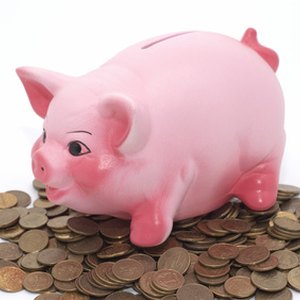
If you want to keep your money safe while earning a competitive rate of interest, a money market account can be a good tool. With a money market account you can earn more interest than you would with a checking or savings account, without sacrificing the safety you need. But not all money market accounts are the same, and shopping around is the best way to maximize your earnings. The interest rate you receive on a money market account is determined in large part by the overall level of interest rates. In 2010 and 2011 those interest rates are very low, and most money market accounts pay 1 percent or less.
Shop Around
The best way to get a good interest rate on your money market account is to shop around. Banks compete with one another for deposits, and one of the ways they do that is by offering higher rates on money market accounts. You can start with your own bank, and then compare the interest rate they offer with that offered by other local banks. Watch your local newspaper for money market specials, and be on the lookout for radio and TV ads offering higher rates on money market savings. When the Federal Funds rate set by the government falls, so do money market rates, but shopping around can get you a better deal. In 2010 most money market accounts paid less than 1 percent, but some accounts paid much more than that.
Online Banks
You might find that online banks are able to offer higher rates on money market accounts than local banks. If you are comfortable banking online, you can enjoy higher rates on the money you need to keep safe. Just make sure the online bank is a member of the FDIC. FDIC protection is critical, since it protects the money in your account in the event the bank become insolvent. As long as the online bank you choose is insured by the FDIC, your money is protected up to $250,000 per account. Like traditional banks, online banks take the money you deposit in a money market and use it to make loans and investments. The FDIC protects your money in case those loans or investments go bad.
Minimum Balance
Unlike savings accounts, which often do not have a minimum balance requirement, money market accounts tend to have minimum balance requirements in the hundreds, or even thousands, of dollars. If you fall below that minimum balance requirement your account might stop earning interest, and you could also be subject to maintenance fees and other charges. Before you open a money market account you should check the fine print carefully to make sure you can meet the minimum balance requirement.
Tiered Earnings
Some money market accounts use a tiered structure for their interest rates. In practical terms, that means that the more you have in the account the higher your interest rate. If you have a great deal of money to invest in a money market account, it is worth your while to seek out an account that uses a tiered interest rate structure. If you plan to keep a smaller balance it makes sense to look for an account that offers a high fixed rate of interest. You can find information about the interest rate for the account, including any tiers the account uses, in the fine print.
References
- CNN Money: Take an Interest in Interest
- Affinity Plus Federal Credit Union. "Superior Money Market." Accessed Nov. 5, 2020.
- Affinity Plus Federal Credit Union. "Become a Member." Accessed Nov. 5, 2020.
- Premier Members Credit Union. "Money Market." Accessed Nov. 5, 2020.
- Co-Op Financial Services. "Co-Op Shared Branch." Accessed Nov. 5, 2020.
- National Cooperative Bank. "Impact Money Market." Accessed Nov. 5, 2020.
- Discover. "Online Banking FAQ: Money Market Accounts." Accessed Nov. 5, 2020.
- J.D. Power. "Direct Banks Earn Higher Customer Satisfaction than Traditional Retail Banks, but Face Call Center Challenges." Accessed Nov. 5, 2020.
- Self-Help Credit Union. "Money Market Account." Accessed Nov. 5, 2020.
- Self-Help Credit Union. "Eligibility | Member Eligibility." Accessed Nov. 5, 2020.
Writer Bio
Based in Pennsylvania, Bonnie Conrad has been working as a professional freelance writer since 2003. Her work can be seen on Credit Factor, Constant Content and a number of other websites. Conrad also works full-time as a computer technician and loves to write about a number of technician topics. She studied computer technology and business administration at Harrisburg Area Community College.

